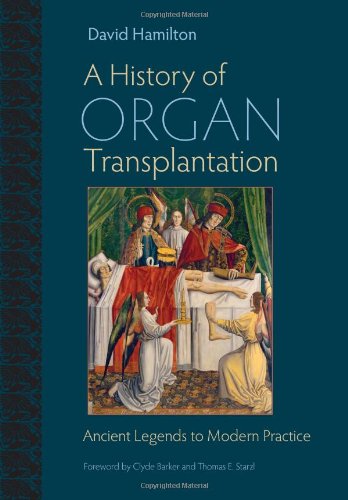

Most ebook files are in PDF format, so you can easily read them using various software such as Foxit Reader or directly on the Google Chrome browser.
Some ebook files are released by publishers in other formats such as .awz, .mobi, .epub, .fb2, etc. You may need to install specific software to read these formats on mobile/PC, such as Calibre.
Please read the tutorial at this link: https://ebookbell.com/faq
We offer FREE conversion to the popular formats you request; however, this may take some time. Therefore, right after payment, please email us, and we will try to provide the service as quickly as possible.
For some exceptional file formats or broken links (if any), please refrain from opening any disputes. Instead, email us first, and we will try to assist within a maximum of 6 hours.
EbookBell Team

0.0
0 reviewsForeword by Clyde Barker and Thomas E. Starzl
A History of Organ Transplantation is a comprehensive and ambitious exploration of transplant surgery—which, surprisingly, is one of the longest continuous medical endeavors in history. Moreover, no other medical enterprise has had so many multiple interactions with other fields, including biology, ethics, law, government, and technology. Exploring the medical, scientific, and surgical events that led to modern transplant techniques, Hamilton argues that progress in successful transplantation required a unique combination of multiple methods, bold surgical empiricism, and major immunological insights in order for surgeons to develop an understanding of the body’s most complex and mysterious mechanisms. Surgical progress was nonlinear, sometimes reverting and sometimes significantly advancing through luck, serendipity, or helpful accidents of nature.
The first book of its kind, A History of Organ Transplantation examines the evolution of surgical tissue replacement from classical times to the medieval period to the present day. This well-executed volume will be useful to undergraduates, graduate students, scholars, surgeons, and the general public. Both Western and non-Western experiences as well as folk practices are included.